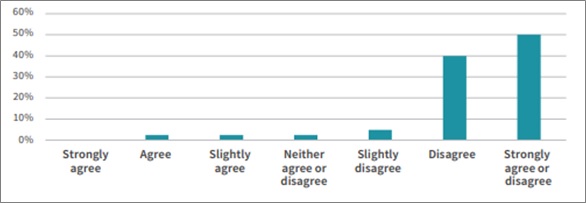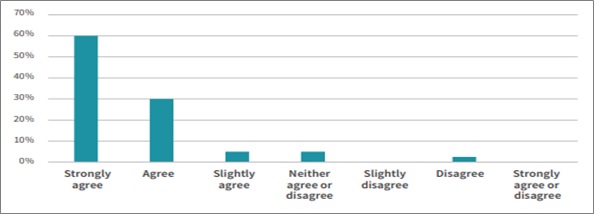 Welcome to REDI-Updates, a bi-annual publication which will get behind the data and translate it into understandable terms. West Midlands REDI staff and guest contributors will discuss various topics, with this first publication focusing on how inclusive growth can be a tool to tackle regional imbalances across the UK.
Welcome to REDI-Updates, a bi-annual publication which will get behind the data and translate it into understandable terms. West Midlands REDI staff and guest contributors will discuss various topics, with this first publication focusing on how inclusive growth can be a tool to tackle regional imbalances across the UK.
In this article, Dr Charlotte Hoole explores the vital role that local governments must play in the economic recovery following Covid-19, including levelling up to address the economic and social gap between London and other UK Regions.
You can view and download the magazine here.
‘Levelling up’ the gap between London and the other UK Regions
The economic and social impact of Covid-19 will undoubtedly setback the government’s election pledge to ‘level up’ the UK, with the gap between London and the rest of the UK predicted to widen this year. While it is impossible to know now what the full impact will be, it is clear that the response required is not one that central government can take on alone. Already local and regional leaders are showing their ability to step up to the mark, but going forward central government needs to go much further to deliver on their decade-long promise to devolve greater powers and funding to support local and regional efforts.
Across England, Metro Mayors, local authorities, businesses and civil society have been leading coordinated local responses to the Covid-19 pandemic. In the West Midlands, for example, the West Midlands Combined Authority has established a Covid-19 Economic Impact Group – chaired by Mayor Andy Street and supported by analysis and data provided by WM REDI and its partners– to assess the ongoing impact of the crisis in the region and to decide on appropriate policy interventions. This recognises the place-based impact of the pandemic that clearly local and regional leaders are in the best position to respond to. However, unlike Wales, Scotland and Northern Ireland who have been granted additional emergency powers via the Coronavirus Act 2020, local efforts to tackle the pandemic in England have not been similarly supported. This is a familiar story but one that needs to change quickly as the UK faces the brunt of its worst recession in modest history. The approach taken must learn from the strengths and weaknesses of existing English devolution arrangement.
Devolution and the role of Local Government
Firstly, central government must recognise the critical role of local government in responding to Covid-19. Previously, devolution in England has been largely top-down, heavily conditional and those leading it have often failed to respond to local government asks on what kind of devolution is needed in place. Going forward, local government – that has already proven its ability to unite and deliver coordinated responses in the early stages of this pandemic – need to be seen by central government as partners in the UK’s recovery.
Secondly, a more coherent devolution framework of greater powers and funding is vital. A recent audit for the UK2070 Commission of devolution decision-makers’ views reveals overwhelmingly that existing devolution arrangements do not provide sufficient powers and funding to city region Mayors and combined authorities as shown in Figure 1. In the light of the Covid-19 pandemic, the need for such powers and funding to strengthen regional capacity and to make regional policy more effective is only going to get greater.

The same audit also revealed an overwhelming view that the Government’s approach to English devolution needs to be more systematic and comprehensive as shown in Figure 2. Responding to Covid-19 requires a long-term, transparent framework of local and regional governance and accountability that cannot be adequately supported by the existing complex and incoherent model of devolution.

The need for greater powers and funding goes hand-in-hand with the need for putting a complete end to austerity for local authorities, which saw real-term reductions of 49.1% in local government funding between 2010-11 and 2017-18. A decade of austerity has heavily compromised the UK’s ability to respond to the pandemic, especially at the local level.
Thirdly, the response to Covid-19 must focus on growing the economies of all UK regions in a way that is truly inclusive and sustainable. With predictions that UK regional inequality – already worse than any other large wealthy country in the world – will worsen as a result of the pandemic, it is vital that national government propose long-lasting solutions to tackle regional inequality. Strengthening the capacity of local and regional governments by devolving further political and fiscal powers must be part of this solution. This will require a radical shift in thinking away from focusing on growing already strategically dominant places such as London. A future growth agenda must also be both inclusive and sustainable, with research showing wide variations across UK regions in terms of their performance on a range of prosperity, inclusivity and sustainability indicators. Local and regional leaders will need to be supported to increase their productivity as well as ‘level up’ their education and skills, earnings, and health and wellbeing. We must also not lose touch with the positives coming out of the crisis such as a strong sense of community and the benefits on the environments.
In short, there is a need for greater devolution to empower local government in their response to Covid-19. This calls for radical, long-lasting reform to the way things currently operate.
This blog was written by Dr Charlotte Hoole, Research Fellow, City-REDI / WM REDI, University of Birmingham.
To sign up for our blog mailing list, please click here.
Disclaimer:
The views expressed in this analysis post are those of the authors and not necessarily those of City-REDI / WM REDI or the University of Birmingham
